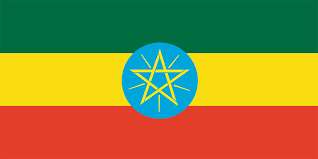MOTRI
MOI
BMO
MDA
CSO
ECCSA
About EPPD
An electronic public-private portal is a web-based platform that facilitates communication, collaboration, and information exchange between public and private entities. It serves as a digital gateway where users can access and share resources, interact with each other, and engage in various activities electronically.
Federal Issues
From the Federal Democratic Republic of Ethiopia
| No. | Title | Organization | Start Date | More |
|---|
Regional Issues
From all Ethioan regions
| No. | Title | Organization | Start Date | More |
|---|
City Issues
From all Ethiopian cities
| No. | Title | Organization | Start Date | More |
|---|
Subscribe Now
Subsciribe and receive notfication on creation of new issues and implementation of enacted laws
Issue Statistics
Statistics for the implementation status of issues
Accepted By ECSSA
Presented to working groups for consideration
Proposal accepted by working group for design and preparation
Full proposal endorsed by working group and presented to the secretariat
Proposed reform presented to the committee
Reform enacted
Ministry or government agencies prepares implementation
Reform implemented
Events
Upcoming Events
There is no any upcoming events yet!
Frequently Asked Questions
Below are frequently asked questions and their answers on EPPD
-
What is an electronic public-private portal?
An electronic public-private portal is a web-based platform that facilitates communication, collaboration, and information exchange between public and private entities. It serves as a digital gateway where users can access and share resources, interact with each other, and engage in various activities electronically.
-
What are the advantages of using an electronic public-private portal?
Some advantages of using an electronic public-private portal include: Convenient access: Users can access the portal anytime and from anywhere with an internet connection. Efficient information exchange: Electronic portals enable quick and seamless sharing of documents, files, and data among users. Improved collaboration: Users can collaborate on projects, communicate, and work together electronically, enhancing efficiency and productivity. Centralized platform: The portal serves as a centralized hub where users can find relevant information, resources, and services. Enhanced security: Electronic portals can implement robust security measures to protect sensitive data and ensure secure communication.
-
What features are typically found in electronic public-private portals?
Common features of electronic public-private portals include: User authentication and access control: Ensuring that only authorized individuals or organizations can access specific areas or resources within the portal. Document management: Allowing users to upload, download, and share documents, files, and other digital assets. Communication tools: Enabling users to send messages, participate in discussions, and collaborate within the portal. Task and workflow management: Supporting the organization and tracking of tasks, assignments, and workflows. Reporting and analytics: Providing tools for generating reports and analyzing data collected within the portal. Integration capabilities: Integrating with other software systems or platforms to enhance functionality and data exchange.
-
How are electronic public-private portals used in government settings?
In government settings, electronic public-private portals can be used for various purposes, such as: Facilitating collaboration between government agencies, private organizations, and citizens. Streamlining government processes, such as permit applications, license renewals, and information requests. Sharing public data and information with the public or specific stakeholders. Coordinating emergency response efforts and disseminating critical information during crises. Supporting public-private partnerships and initiatives, such as economic development programs.
-
Are there any challenges in implementing electronic public-private portals?
Implementing electronic public-private portals may come with challenges, including: Technical complexities: Developing and maintaining a robust and user-friendly portal can require significant technical expertise. Data security and privacy: Ensuring that sensitive data is protected and privacy regulations are adhered to. User adoption: Encouraging users to embrace the portal and utilize its features effectively. Interoperability: Integrating the portal with existing systems and platforms used by different entities. Training and support: Providing adequate training and support for users to navigate and utilize the portal effectively.
-
Can electronic public-private portals be customized to specific needs?
Yes, electronic public-private portals can be customized to meet specific needs. Organizations can tailor the portal's features, user interface, and functionality to align with their requirements. Customization may involve branding, adapting workflows, integrating with existing systems, and incorporating specific modules or tools.
-
How do electronic public-private portals ensure data security?
Electronic public-private portals employ various measures to ensure data security, such as: Encryption: Encrypting data in transit and at rest to protect it from unauthorized access. User access controls: Implementing authentication mechanisms and access controls to ensure only authorized users can access specific data or features. Regular security updates: Keeping the portal's software and systems up to date with the latest security patches. Auditing and monitoring: Monitoring user activities, logging events, and conducting regular security audits to identify and address potential vulnerabilities. Secure data storage: Employing secure data storage practices, including backups and disaster recovery plans, to prevent data loss or unauthorized access. Compliance with regulations: Adhering to relevant data security and privacy regulations, such as GDPR or HIPAA, depending on the nature of the data being handled.
Contact
Contact us. Tell us what you have in your mind about our service. Your feedbacks and comments help us toimprove our services.
Location:
Woreda 09 basha wolde chilot, Arada Sub City, Addis Ababa,
Email:
info@gmail.com
Call:
+251115513990
 EPPD
EPPD
